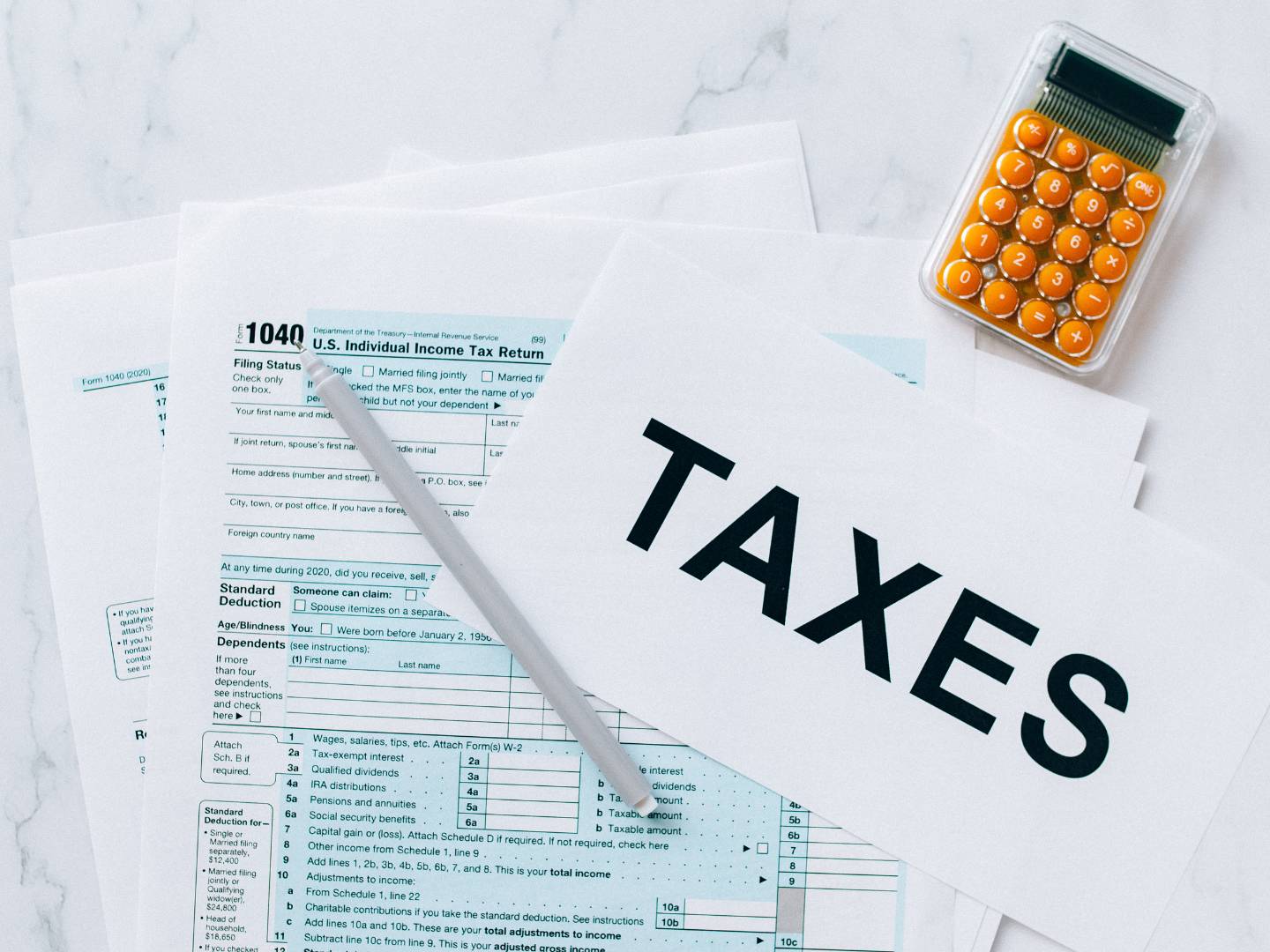Renting in France: Tenant rights and rental agreements
Renting in France? Read our guide on rental contracts to understand your obligations and tenant rights in France.
Jale
France is one of the best countries to move to as an expat, thanks to its excellent educational institutions, world-class health care system, and many job opportunities. But finding your accommodation in France involves lots of administrative work like reading and understanding your contract… and all primarily in French.
To ensure you protect your tenant rights in France and avoid challenging situations with your landlord, learn about rental agreements, your obligations, and your tenant rights in France.
So let’s dive in!
Rental condition: minimum requirements
To legally rent an apartment in France, it must have a minimum ceiling height of 2.2m, a minimum area of 9m² with a window, a separate bathroom, heating, a water system, and working drains and gutters. In addition, the building and the apartment must not threaten a tenant's health and safety.
Furnished v/s unfurnished rentals in France

It’s common to see both unfurnished and furnished apartments for rent in France. Generally, unfurnished (vide) apartments are for extended stays and offer better tenant rights with a minimum of 3 years contract. Furnished (meublée) apartments are for short-term stays with 1-year contracts and are less flexible regarding tenant rights.
Furnished apartments in France must have a kitchen with appliances such as a microwave and fridge, bed, bed linen, kitchen utensils, and living room furniture such as tables and chairs. Unfurnished apartments usually come upholstered (flooring, curtains, paint, and lights). But in some cases, properties are also rented out bare.
Rental contract: mandatory property condition report and insurance

The rental agreement will include everything, including the duration of your lease, your obligations and rights, clauses about the rental price and deposit, and fines in case of a breach of contract. So before you sign the rental agreement, read it carefully and understand everything.
In France, a typical rental contract includes:
- names of tenant and landlord
- address of the rented apartment
- if booked from the agency, the address of the rental agency
- start and end date of the contract
- contract renewal possibilities
- obligations and responsibilities of tenant and landlord
- rent and deposit
- insurance information
- clause about rent increase
- clauses about fines
- bank address to pay the rent
- inventory of the apartment
- utility information (if it’s included in the rent)
- check-in and check-out information
- information on notice periods for ending the contract
Mandatory property condition/inventory report

When you move to a new apartment, one of the essential things is to perform an inventory check and prepare a report describing the condition of the property. If you’re renting from abroad and can’t do the inventory before you move, make sure you do it within 24 hours after you move into the apartment.
The landlord and the tenant create this report together. The report should include the state of each room, missing items, all existing damages, and if the apartment is clean. Make sure you take pictures and notify the landlord of any missing items and damage. This way, you can avoid paying a fine at the end of your lease.
Like most official documents, this report should be in French. But since most internationals don’t know French, the report can be written in English and officially translated into French. There must be a signature of the tenant and the landlord and the sentence Bon pour accord (good for agreement) under each photo.
To prevent any disagreement with the landlord, it’s better to use the service of huissier (bailiff) when you create this report. Preparing the report will cost around €200-€300, which must be shared between the landlord and the tenant.
Usually, when you rent from a rental agency, the agency prepares this report, and its cost falls under the rental agency's fee.
Liability insurance in France
When you rent furnished or unfurnished apartment in France, you’re legally obligated by the French government to take liability insurance against the risk of fire, explosion, water break and other damages to furniture. If you don’t, the landlord has the right to take it on your behalf and charge you or, worst case scenario, evict you. You’ll be better off taking it. It’s a small fee to protect you and your apartment from potential hefty costs in case something
But when it comes to furnished rentals, the landlord is legally obligated to take the insurance called landlord insurance (assurance propriétaire non-occupant (PNO) too.
If the landlord wants you to take the liability insurance in a furnished apartment, then it must be stated in your contract clearly.
Paying security deposit in France

Your landlord will ask you to pay a security deposit (dépôt de garantie) after signing your rental contract and before you move in. Typically, the deposit will correspond to 1 month's rent for unfurnished flats and 2 months' rent for furnished flats. Unless otherwise stated, the tenant can’t use the deposit to pay last month’s rent.
You will get back your security deposit 60 days after moving out unless there’s some damage to the property, in which case the landlord will retain the deposit to pay for costs.
Duration of rental agreement in France

Typically, you can rent furnished apartments with short-term contracts, which are up to 1 year, and unfurnished apartments with long-term rental contracts, which are a minimum of 3 years.
When rented to students, contracts may last the academic year.
Renewal of tenancy agreement
If your contract allows renewals, you can extend your stay. In France, you’re allowed to renew your contract by 1 year for furnished rentals and by 3 years for unfurnished rentals, with an option to renew again in the future.
If the landlord hasn’t given you 6 months’ notice, then you have a right to live in the rental even after your lease has expired. In this case, your contract will automatically renew for the duration of your original contract and there’s no need to prepare a new one.
Documents needed to rent an apartment in France

Typically, you have to provide these documents to rent an apartment in France.
- Your passport
- Your residence permit
- Passport-sized photograph
- Your previous home address
- Means of financial support (employment contract, 3 last payslips, bank statements)
- If you’re a student, proof of your enrollment in a French education institution (student card, official statement from the institution).
The French government has an official website listing all the documents potential tenants have to provide to rent an apartment.
Rent control in France
Because the rental market in France is overcrowded and there’s a supply shortage in big cities like Paris and Lyon, French landlords used to set high prices.
But since July 1, 2019, the government has created new rules to protect tenants from disproportionate rent increases in crowded cities. Since then, 28 regions of France have fallen under the rent control areas where landlords can’t increase the rent prices more than the rent reference index.
The 28 regions in France with rent control are: Ajaccio, Annecy, Arles, Bastia, Bayonne, Beauvais, Bordeaux, Draguignan, Fréjus, Genève-Annemasse, Grenoble, La Rochelle, La Teste-de-Buch-Arcachon, Lille, Lyon, Marseille-Aix-en-Provence, Meaux, Menton-Monaco, Montpellier, Nantes, Nice, Paris, Saint-Nazaire, Sète, Strasbourg, Thonon-les-Bains, Toulon, Toulouse.
In addition, to rent control, Paris and Lille are subject to rent ceilings, the maximum amount a landlord can charge a tenant.
Additional costs: taxes and utilities
Most of the time, landlords set up the utilities in furnished apartments and the costs are included in the rental price. But if you’re renting an unfurnished apartment, chances are you’ll need to arrange utilities yourself and pay the bills directly to the companies.
As a tenant, you’re responsible for paying the annual residence tax (taxe d’habitation). The amount you’ll pay depends on the size of your apartment and its state, your income, and the municipality you live in. In addition, if you have a TV at home, you’ll pay extra tax.
Termination: minimum notice period to end your contract
Suppose your contract doesn’t state the definite end time, or you want to move out of the apartment before this date. In this case, you must give a written notice (reccomender) delivered to the landlord by a bailiff (hussier) or via registered post within the determined notice period (called le congé).
For unfurnished long-term apartments, the notice period to end your contract is up to 3 months for tenants and 6 months for landlords.
The minimum notice period for short-term furnished rental contracts is 1 month for the tenant and 3 months for the landlord.
In some cases, 1-year contracts don’t have a let-go period; in this case, you must stay until the 1-year is finished. However, if your furnished rental contract includes a mobility lease (bail mobilité) clause, then you can end your contract by giving 1 month's notice.
Mobility lease only applies if you’re:
- studying in a French higher education institution
- going to work as a trainee or do an internship
- working with a temporary employment contract
- in the civic service
Is subletting legal in France?
In France, tenants can sublet their apartments partially or fully by receiving written permission from the landlord. When subletting, you must send an official letter to your landlord stating your reason for subletting, information about the flat, and duration. The official website has a template letter you can use. Also, you can’t sublet it for higher than the original rent price.
Remember that subletting without the landlord's approval leads to termination of the rental agreement and huge fines. In fact, back in 2018, one tenant received a €47,000 fine for illegally subletting the apartment.
Eviction: when can they do that and when not?
In France, a winter truce (la trêve hivernale) prevents landlords from evicting a tenant during winter, including reasons such as not paying rent. Last year this period was from 1 November 2021 to March 31, 2022.
At other times, the landlord has a right to evict the tenant if they fail to pay the rent on time, don’t take liability insurance, or for other serious conditions. Even in these circumstances, the landlord must give a 6-month notice to the tenant.
Privacy in the rental apartment
The landlord can’t enter the apartment unless it’s written in the contract and approved by the tenant.
Changes to property, repairs, and renovations

In most cases, the tenant isn’t allowed to make significant changes in the apartment, like painting the walls. All the minor repairs, such as changing the lightbulb or fixing the dishwasher, fall under the tenant’s liability.
The landlord is only responsible for the major repairs and renovations, like fixing broken drain pipes.
Rent receipt
In France, the tenant has the right to ask the landlord to send a rent receipt. The rent receipt is proof of payment indicating that you paid the rent on time and don’t owe money. The tenant can use the receipt for the housing benefit or proof of the address.
If you want your landlord to send you the rent receipt, you can ask by sending the letter. You can find the example letter here. Keep in mind that if you want to receive the rent receipt via email, you must give your consent to the landlord.
Do you have problems with your landlord?

Unfortunately, it’s possible to have disagreements with your landlord. If you think you can’t solve the dispute alone, you can head to the tenants’ association for free legal advice.
Renting in France

Now that you’ve read all about the rules and responsibilities, it’s time to start looking for a rental in France. But what’s the best way?
In France, you can rent directly from landlords (particulier à particulier) or rental agencies (agent immobilier). When you book through agencies, you’ll also pay administrative fees. At first glance, it might seem like an unnecessary cost.
But trusted rental agencies like Housing Anywhere protect your rights, make sure the listing isn’t a scam, and help you with all the administrative processes, for instance, handling your contract and transferring your money to the landlord after 24h hours of the inspection period. Rental agencies are especially beneficial when you book for the first time and aren’t in France physically to check the apartment yourself.
This article is for informational purposes only.
Please reach out to content @housinganywhere.com if you have any suggestions or questions about the content on this page. For legal advice or help with specific situations, we recommend you contact the appropriate authorities.
Related articles
In this article
Rental condition: minimum requirements
Rental contract: mandatory property condition report and insurance
Paying security deposit in France
Duration of rental agreement in France
Renewal of tenancy agreement
Documents needed to rent an apartment in France
Rent control in France
Additional costs: taxes and utilities
Termination: minimum notice period to end your contract
Is subletting legal in France?
Eviction: when can they do that and when not?
Changes to property, repairs, and renovations
Rent receipt
Do you have problems with your landlord?
Renting in France
Moving to France?
Find accommodation in cities across France. Book the place of your dreams from verified landlords even before relocating!
Start my Search

